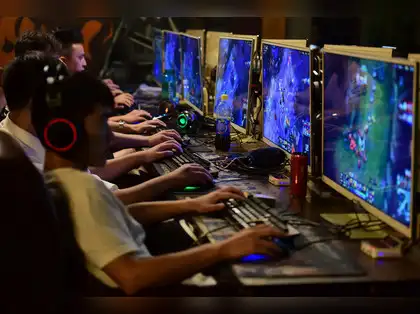Picture this: It’s a Friday night in 2018, and I’m huddled in my living room with a bowl of popcorn, eyes glued to my screen as thousands cheer virtually for a League of Legends world championship. What started as a casual hobby for me—yelling at pixelated champions—has exploded into a global spectacle. Little did I know then that behind every flashy kill or strategic play lies a treasure trove of data, powering an entire economy. Esports aren’t just games anymore; they’re data factories churning out insights that businesses crave. This shift has turned virtual battles into real-world value, creating jobs, innovations, and billions in revenue. But how exactly does clicking a mouse or tapping a controller fuel something as massive as the data economy? Let’s dive in, with real stories and laughs along the way, to uncover the magic.
What is the Data Economy?
The data economy is basically the world running on information as currency—think of it as oil for the digital age, where bits and bytes drive decisions, innovations, and profits. Every click, view, or interaction generates data that’s collected, analyzed, and sold to make smarter choices in everything from marketing to AI. In esports, this means turning player stats and fan behaviors into actionable gold. It’s not just numbers; it’s the backbone of modern business, projected to add trillions to global GDP by making industries more efficient and personalized.
The Rise of Esports
Esports have skyrocketed from basement LAN parties to stadium-filling events, with viewership rivaling traditional sports like the NBA. Back in my college days, I’d sneak in games between classes, never imagining it’d become a career path for millions. Today, the industry boasts over 500 million fans worldwide, with tournaments offering prize pools that make lottery winners jealous. This growth isn’t accidental—it’s fueled by streaming platforms and mobile tech, creating a perfect storm for data generation that businesses are eager to harness.
How Esports Generate Massive Data
Every esports match is a data explosion, capturing everything from player heart rates to audience reactions in real time. Imagine a single game of Dota 2 producing gigabytes of info on strategies, errors, and wins—it’s like a symphony where every note is logged for replay. This sheer volume, often processed via cloud computing, turns games into living labs. Unlike traditional sports, esports data is digital-native, making it easier to track and scale, which is why companies flock to it for insights.
- Player Metrics: Kills, deaths, assists, and even mouse clicks per minute provide granular performance data.
- Viewer Engagement: Chat logs, watch times, and emote usage reveal what keeps fans hooked.
- In-Game Economy: Virtual item trades and purchases mirror real market behaviors.
- Biometric Data: Wearables track stress levels, adding a human element to the numbers.
Applications of Esports Data in the Economy
Esports data isn’t sitting idle—it’s turbocharging sectors from entertainment to finance, creating a ripple effect worth billions. I once chatted with a friend who works in marketing; he swore by esports insights for targeting ads that actually convert. This data ecosystem supports jobs in analytics, boosts sponsorships, and even trains AI models. It’s a win-win where fun meets fortune, proving games are serious business.
Player Performance Analytics
Teams use data to dissect plays like surgeons, spotting weaknesses before opponents do—who knew math could make you a better gamer? Tools crunch numbers on reaction times and tactics, turning average players into pros. This not only elevates competition but sells software to aspiring athletes everywhere. It’s hilarious how a bad game day can be fixed with a spreadsheet.
Fan Engagement and Marketing
Brands analyze viewer data to craft personalized experiences, like targeted merch drops during hype moments. Streaming giants like Twitch thrive on this, predicting trends to keep users glued. My own binge-watching habits? Probably fueling some algorithm right now. This creates loyal communities and ad revenue that keeps the lights on.
Betting and Gambling
Esports betting explodes with data-driven odds, making wagers smarter and safer—though I learned the hard way not to bet on underdogs without stats. Platforms use real-time info for live bets, generating massive economic activity. It’s transformed gambling into a data science playground, with regulations catching up.
AI and Machine Learning
AI feeds on esports data to learn patterns, improving everything from game design to virtual coaches. Companies train models on match replays, exporting tech to other industries like healthcare simulations. It’s oddly touching how a gamer’s rage quit could advance robot learning. This crossover amplifies the data economy’s reach.
| Aspect | Traditional Sports Data | Esports Data |
|---|---|---|
| Volume | High, but seasonal and event-based | Massive and continuous, from daily streams |
| Accessibility | Often gated by broadcasters | Digital and open via APIs for broader use |
| Real-Time Processing | Limited by physical constraints | Instant via cloud, enabling live analytics |
| Economic Impact | $500B+ industry, data secondary | $4.8B projected by 2025, data central |
Pros and Cons of Leveraging Esports Data
Pros:
- Boosts innovation: Data drives better games and tools, sparking new startups.
- Economic growth: Creates jobs in analytics and tech, fueling local economies.
- Personalized experiences: Fans get tailored content, increasing loyalty.
Cons:
- Privacy risks: Constant tracking raises concerns over data misuse.
- Inequality: Not all regions have access to high-speed tech for participation.
- Over-reliance: Too much data focus might kill the fun, turning play into work.
Case Studies and Real Examples
Take IBM’s involvement in esports—they’ve used cloud tech to handle massive data loads during tournaments, turning chaos into insights for broadcasters. I remember watching a stream where real-time stats popped up like magic, all thanks to their systems. Another gem: Data Sports Group provides APIs that let betting sites predict outcomes, raking in revenue while keeping things fair. Or consider Elympics, blending AI with esports for decentralized data economies—it’s like giving gamers ownership of their own stats.
Challenges and Ethical Considerations
Data’s power comes with pitfalls, like ensuring fair play amid cheats that skew analytics—nobody wants a rigged dataset ruining the fun. Ethically, balancing monetization with privacy is key; fans shouldn’t feel like lab rats. I’ve seen debates rage online about who owns viewer data, highlighting the need for transparent policies. Overcoming these builds trust, sustaining the boom.
Future Outlook
Looking ahead, esports data could redefine industries, with VR and metaverses amplifying collection points—imagine data from virtual worlds powering real economies. Projections show the market hitting $5.7B by 2028, driven by AI integrations. As someone who’s grown with this scene, I’m excited for a future where data makes games more inclusive. But let’s keep the human spark alive amid the algorithms.
Comparison: Esports vs. Traditional Gaming in Data Utilization
Esports take data to pro levels, while casual gaming focuses on fun over forensics. Traditional games generate user data for updates, but esports add competitive layers like leaderboards and bets. This makes esports a hotter commodity for economists, with deeper insights into human behavior under pressure. Yet, both fuel the data economy—just at different speeds.
People Also Ask
How does esports make money?
Esports rake in cash through sponsorships, media rights, and ticket sales, but data sales are the hidden gem. Analytics firms buy viewer insights for targeted ads, while betting platforms pay for predictive models. It’s a multifaceted model where data turns spectators into revenue streams.
What is the role of data in esports?
Data is the MVP, optimizing everything from strategies to fan interactions. It helps teams win, marketers engage, and developers innovate—essentially, it’s the glue holding the industry together. Without it, esports would be guesswork instead of precision play.
How big is the esports market?
The global esports scene is booming, expected to hit $4.8 billion in revenue by 2025, growing at over 20% annually. This includes data-driven segments like analytics services, which alone could add billions more. It’s outpacing many traditional entertainment sectors.
Where can I access esports data?
Platforms like Esports Charts offer free and paid stats on viewership and tournaments. For deeper dives, check APIs from Data Sports Group or IBM’s esports tools—great for analysts or curious fans. Always verify sources for accuracy.
What are the best tools for esports analytics?
Top picks include Matellio for custom solutions, or escharts.com for tournament metrics. For AI-powered insights, try Almanak or Elympics—user-friendly and packed with features. These help turn raw data into winning strategies.
FAQ
How is esports data used in AI development?
Esports provide rich datasets for training AI on decision-making and patterns, exported to fields like autonomous systems. It’s like games teaching robots to think under fire, boosting innovation across tech.
What privacy concerns arise from esports data collection?
Constant tracking of plays and views can lead to profiling without consent, risking data breaches. Solutions include anonymization and opt-outs, ensuring fun doesn’t come at personal cost.
Where to get started with esports betting using data?
Begin with platforms like DraftKings, armed with stats from escharts.com. Learn basics via free tools, then graduate to advanced analytics for smarter bets—remember, gamble responsibly.
What are the best analytics platforms for esports teams?
Opt for MathCo or dentsu for performance breakdowns, or integrate with Twitch APIs for engagement data. These offer dashboards that make complex info digestible, helping teams dominate.
How will esports data impact future economies?
By 2030, it could add trillions through AI and marketing efficiencies, creating jobs in data science. It’s a bridge to decentralized economies, where gamer insights power global decisions.



